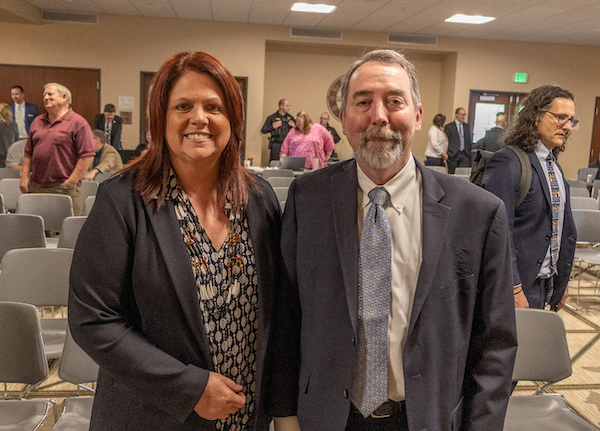THE FOLLOWING IS A PRESS RELEASE FROM THE OREGON DEPARTMENT OF FISH AND WILDLIFE
The Fish and Wildlife Commission today voted at its meeting in Salem to adopt a new Cooperative Management Agreement between the Coquille Indian Tribe and the Oregon Department of Fish and Wildlife (ODFW).

The agreement establishes a voluntary cooperative partnership between ODFW and the Tribe to collaborate, share resources and work as partners to develop and implement plans to protect, restore and enhance fish and wildlife populations and their habitat within a five county area of southwest Oregon (Coos, Curry, Douglas, Lane, and Jackson counties, including the associated nearshore marine areas), an area defined as the Tribe’s service area by the federal government. The agreement will enhance tribal sovereignty and give the tribe a stronger voice in protecting and enhancing fish, wildlife, and their habitats. It will also set up a framework under which Coquille tribal members will participate in subsistence and ceremonial harvest of fish and wildlife resources licensed and managed by the tribal government in partnership with ODFW and the Oregon State Police. Within those counties, enrolled members of the Coquille Indian Tribe will participate in hunting, fishing, shellfishing, and trapping licensed by the Coquille Indian Tribe. Annual harvest limits and areas for harvest by tribal members will be set by mutual consent between the Tribe and ODFW.
In other business, the Commission:
The budget now goes to the Governor’s office for consideration. The Governor will submit a state budget for the Legislature to consider during the 2023 session.
Restoration & Enhancement (R&E) projects: The Commission unanimously approved funding for six R&E projects recommended by the R&E board, including an analysis of six ODFW hatcheries for their resiliency to climate change, support for a smolt acclimation project on the Ochoco Preserve, and removal of invasive fish in several Oregon lakes.
Oregon Conservation and Recreation Fund (OCRF) projects: Approved funding of several projects supported by the OCRF Advisory Committee from the 2021/2022 competitive granting cycle. These projects focus on a wide range of topics that implement the Oregon Conservation Strategy and connect people with the outdoors.
Furbearer regulations for 2022-24: The Commission adopted regulations for the hunting and trapping of furbearers and unprotected mammals (bobcat, gray fox, red fox, marten, muskrat/mink, raccoon, river otter, beaver, plus badger, coyote, nutria, opossum, etc.) that take effect on July 1, 2022. Changes from previous regulations clarify trapping closures on department-owned lands including Wildlife Management Areas, posted Refuges and Safety Zones, and at most properties owned by the department for the purpose of angling or boat access. (Trapping will still be allowed at these areas by permit from the department for specific circumstances.)
Changes to trap check intervals for predatory animals were also adopted in a 6-1 vote; these changes came after a Commission trap check work group, final report, and follow-up conversations.
Other changes expand mandatory reporting requirements for licensed furtakers harvesting beaver, including requiring specific information on each beaver taken during the harvest season such as the location (watershed, landownership, and water feature type) and the reason for the harvest (e.g., to address damage). To comply with Senate Bill 1501 (Private Forest Accord) passed by the 2022 Oregon Legislative Assembly, a licensed furtaker that traps a beaver on privately owned forestland other than “small forestland” as defined in the bill may not sell or exchange the pelt of the beaver. There is an exception for when beaver are taken to address damage; however in most cases that is being done outside of the beaver harvest season. Other adopted changes improve consistency and understanding of beaver harvest closure areas.
The meeting was livestreamed and a recording is available on YouTube.



